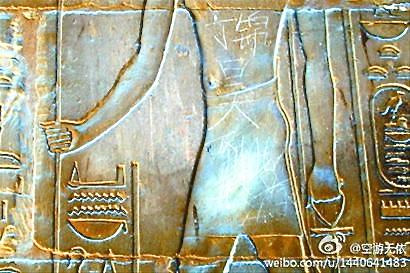A major Chinese manufacturing company of air purifying equipment inadvertently revealed in an online advertisement that China’s ruling communist party officials are treated to fresh, clean air at their luxury compound of Zhongnanhai. Meanwhile the rest of Beijing citizens are treated to misleading daily air quality reports.
Beijing is one of the most polluted cities in the world, and for years Chinese have asked themselves why the Chinese communist party (CCP) leaders haven’t done something to improve Beijing’s air quality--don’t they have to breathe the same dirty air? It turns out, they don’t.
According to an ad posted by Changsha based air purifier company Yuanda Group, it didn’t take much effort to convince the CCP leaders to install over 200 of their US$2,000-per-unit air purifiers at Zhongnanhai. They first installed one unit in the meeting room of the Politburo Standing Committee. Not long after, the company received the order, it said.
“From living quarters and meeting rooms to swimming pools and fitness centers, everywhere at Zhongnanhai air purifiers have been installed,” Hong Kong’s South China Morning Post quoted from Yuanda’s website.
“When cleaning the air purifier, after seeing the dirty ink-like water, Yuanda air purifier soon became the chosen air purifier of national leaders,” the website said.
It also assured the public that “providing clean and healthy air for the national leaders is of great benefit to the people.”
Although the ad has been removed, the commotion it stirred up has spread through Chinese cyberspace and beyond.
Privileges of Party Elite
A Nov. 4 New York Times article titled “The Privileges of China’s Elite Include Purified Air“ said, according to Yuanda Group’s vice-president Zhang Zhong, the company installed over 200 air-purifiers in the Great Hall of the People, Hu Jintao’s office, and offices and homes of high ranking CCP officials.
The article drew a rebuke from the CCP’s mouthpiece Global Times on Nov. 7 saying, “A normal government purchase suddenly turns into privileges for the Chinese elite under the pen of an American correspondent who lacks in knowledge.”
The Beijing Evening News also came to the Party’s defense in a Nov. 8 article: “The New York Times links air quality to special privileges most hated by Chinese people, shows the reporter’s political sensitivity... But only citing the Yuanda website promotion about air purifiers in the report shows that the American reporter lacks professionalism.”
But the Chinese general public seems to have a different view. They wrote sarcastic, and sometimes scathing, messages on Sina Weibo, China’s most popular micro-blog.
One post said: “I think this is very believable. I always thought air quality in Beijing is so bad, those in Zhongnanhai must have taken some measures so they can breathe clean air, otherwise they would have moved by now. Whether it was the Yuanda company or not, I believe the special clean air [story] is definitely true.”
Another post said: “Everyone at CCP central needs to install a human conscience purifier. If they could purifier away a pot-full of black water from their soul, all of China’s problems would be solved.”
Another said: “It’s better the citizens don’t know, so they won’t be mentally polluted. It’s like with food safety that’s kept secret from people.”
Yuanda did not verify the installation of air purifiers in the offices and homes of CCP leaders, but the company spokesperson replied during an interview with Deutsche Presse, “Our customers do include many government agencies.”
Air Quality Report Discrepancies
Recently, Beijing’s air has been highly contaminated by brown smog. Air quality detector instruments at the U.S. embassy in Beijing have consistently displayed dangerous levels. Many well-known Chinese personalities post the air quality index published by the U.S. embassy on their Weibo blogs, and this value is much higher than the one published by the Beijing Environmental Protection Bureau, according to a Beijing Morning News report on Nov. 1.
For example, on Oct. 31, the U.S. embassy air quality index was 307, and the PM 2.5 (a particle matter size standard) was 257 for particles less than 0.25 micrometers in diameter.
But the index announced by the Beijing Environmental Protection Bureau was only 132.
According to the PM 2.5 standard, 201-300 is considered very unhealthy, and above 300 is considered hazardous.
On Nov. 8, the U.S. embassy published an article on its official microblog, explaining how the American air quality index is measured.
The U.S. embassy uses the PM 2.5 standard of the U.S. Environmental Protection Agency, which measures the presence of particles that are less than 2.5 micrometers in diameters. It said these particles are the most dangerous for the human body.
The Chinese regime, however, only publishes data for particles greater than 10 micrometers in diameter.
Responding to questions about the discrepancy between the two air quality indexes, She Shaozhong, vice-director of Beijing’s Environmental Protection Bureau said, they don’t care what other countries’ embassies do.
According to documents leaked by Wikileaks, the air quality measurements published by the U.S. embassy are being considered as interfering with China’s internal affairs. An official from the CCP’s Foreign Affairs Office has already requested that the U.S. stop releasing the data.






